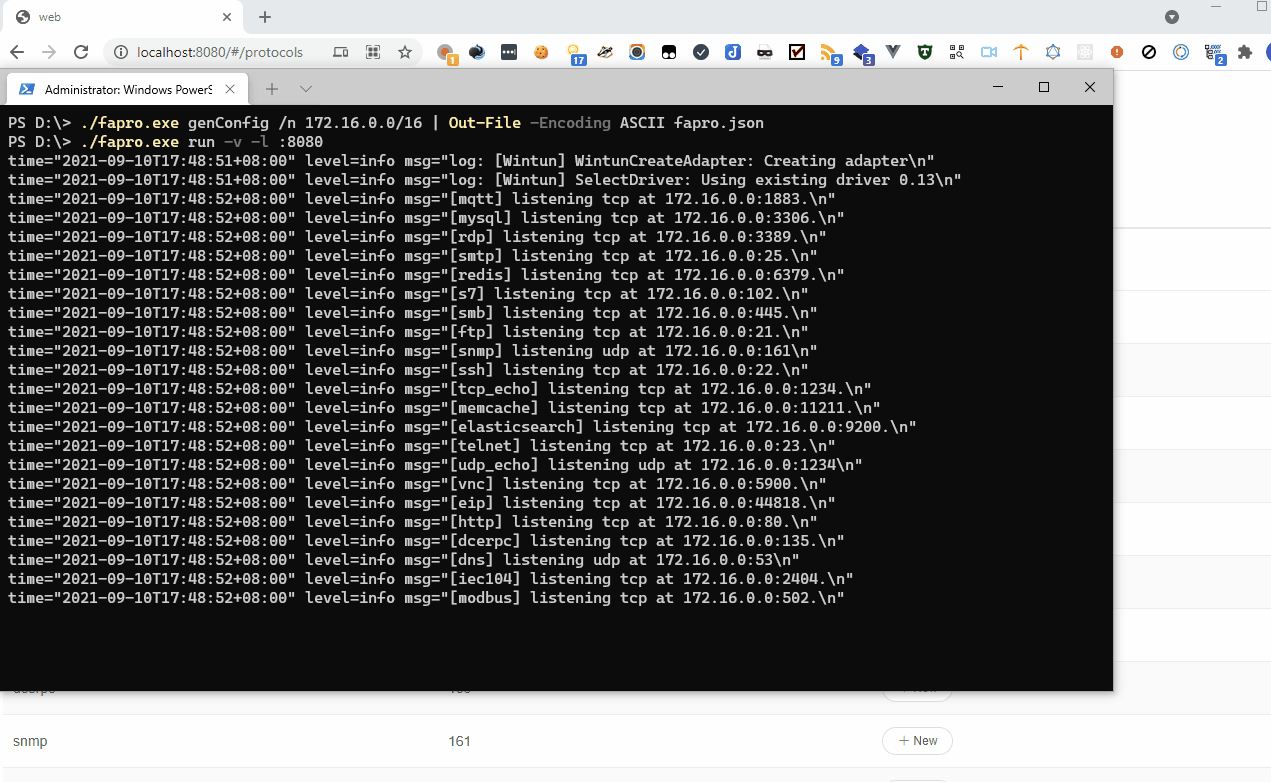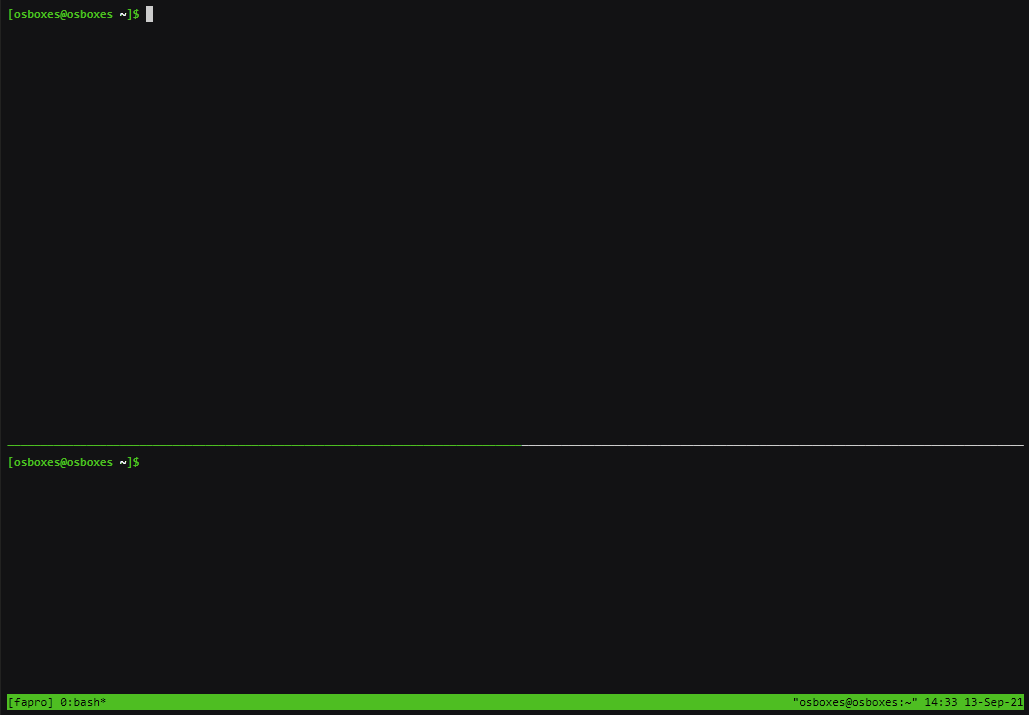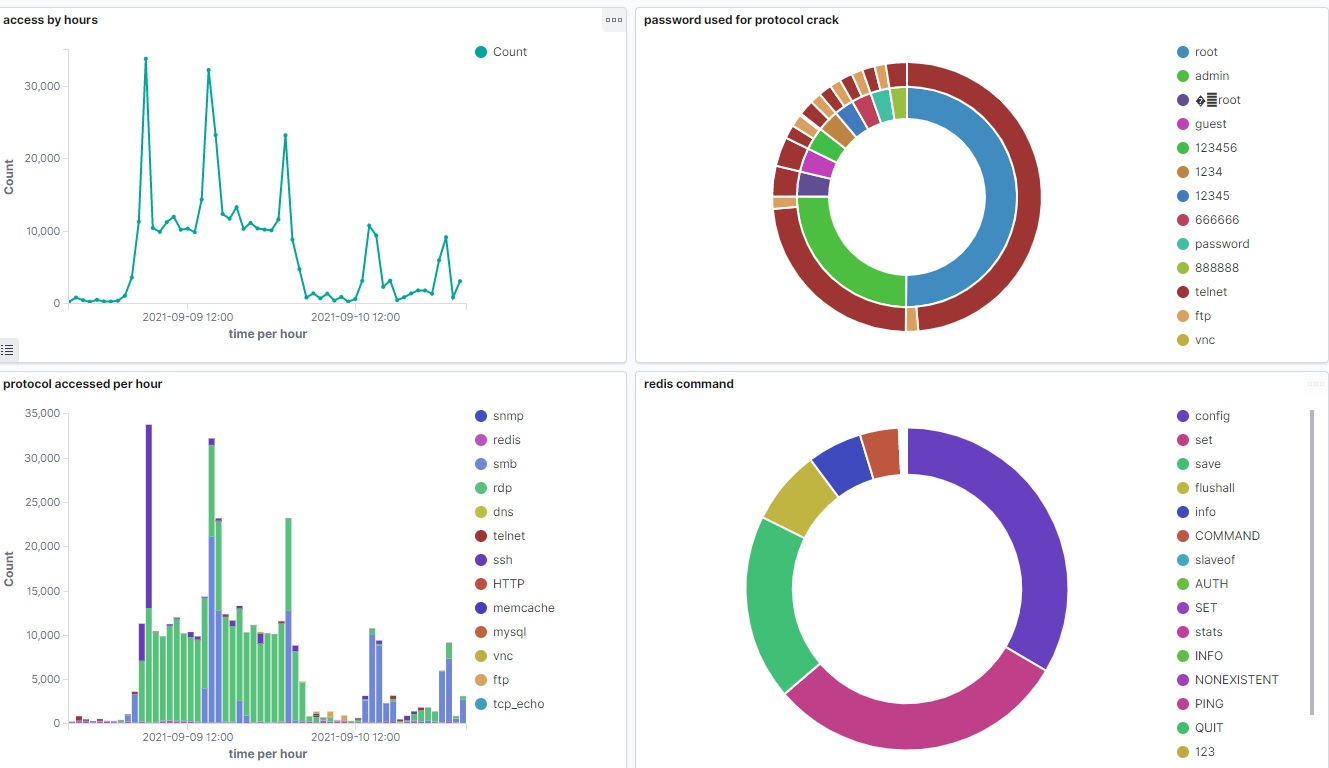FaPro is a Fake Protocol Server tool, Can easily start or stop multiple network services.
The goal is to support as many protocols as possible, and support as many deep interactions as possible for each protocol.
- Supported Running Modes:
- Local Machine
- Virtual Network
- Supported Protocols:
- DNS
- DCE/RPC
- EIP
- Elasticsearch
- FTP
- HTTP
- IEC 104
- Memcached
- Modbus
- MQTT
- MySQL
- RDP
- Redis
- S7
- SMB
- SMTP
- SNMP
- SSH
- Telnet
- VNC
- Use TcpForward to forward network traffic
Support credssp ntlmv2 nla authentication.
Support to configure the image displayed when user login.

Support user login.
Support fake terminal commands, such as id, uid, whoami, etc.
Account format: username:password:home:uid

Support website clone.
The configuration of all protocols and parameters is generated by genConfig subcommand.
Use 172.16.0.0/16 subnet to generate the configuration file:
fapro genConfig -n 172.16.0.0/16 > fapro.jsonOr use local address instead of the virtual network:
fapro genConfig > fapro.jsonRun FaPro in verbose mode and start the web service on port 8080:
fapro run -v -l :8080Use ELK to analyze protocol logs:

This section contains the sample configuration used by FaPro.
{
"version": "0.33",
"network": "127.0.0.1/32",
"network_build": "localhost",
"storage": null,
"hosts": [
{
"ip": "127.0.0.1",
"handlers": [
{
"handler": "dcerpc",
"port": 135,
"params": {
"accounts": [
"administrator:123456",
],
"domain_name": "DESKTOP-Q1Test"
}
}
]
}
]
}
- version: Configuration version.
- network: The subnet used by the virtual network or the address bound to the local machine(Local mode).
- network_build: Network mode(supported value: localhost, all, userdef)
- localhost: Local mode, all services are listening on the local machine
- all: Create all hosts in the subnet(i.e., Can ping all the host in the subnet)
- userdef: Create only the hosts specified in the hosts configuration.
- storage: Specify the storage used for log collection, support sqlite, mysql, elasticsearch. e.g.
- sqlite3:logs.db
- mysql://user:password@tcp(127.0.0.1:3306)/logs
- es://http://127.0.0.1:9200
- hosts: Each item is a host configuration.
- handlers: Service configuration, the service configured on the host, each item is a service configuration.
- handler: Service name (i.e., protocol name)
- params: Set the parameters supported by the service.
Create a virtual network, The subnet is 172.16.0.0/24, include 2 hosts,
172.16.0.3 run dns, ssh service,
and 172.16.0.5 run rpc, rdp service,
protocol access logs are saved to elasticsearch.
{
"version": "0.33",
"network": "172.16.0.0/24",
"network_build": "userdef",
"storage": "es://http://127.0.0.1:9200",
"hosts": [
{
"ip": "172.16.0.3",
"handlers": [
{
"handler": "dns",
"port": 53,
"params": {
"accounts": [
"admin:123456"
],
"appname": "domain"
}
},
{
"handler": "ssh",
"port": 22,
"params": {
"accounts": [
"root:5555555:/root:0"
],
"prompt": "$ ",
"server_version": "SSH-2.0-OpenSSH_7.4"
}
}
]
},
{
"ip": "172.16.0.5",
"handlers": [
{
"handler": "dcerpc",
"port": 135,
"params": {
"accounts": [
"administrator:123456"
],
"domain_name": "DESKTOP-Q1Test"
}
},
{
"handler": "rdp",
"port": 3389,
"params": {
"accounts": [
"administrator:123456"
],
"auth": false,
"domain_name": "DESKTOP-Q1Test",
"image": "rdp.jpg",
"sec_layer": "auto"
}
}
]
}
]
}
We have collected some frequently asked questions. Before reporting an issue, please search if the FAQ has the answer to your problem.
- Issues are welcome.
